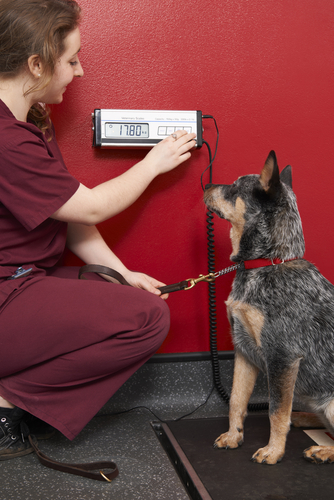So, you love dogs and have been meaning to get a service dog that is trained to meet your specific needs! Well, in that case, there’s a lot you need to know about them.
Service dogs can accomplish amazing feats on a daily basis and have an incredible history of providing top-notch service to those in need of assistance. They can help their masters open and close doors, guide them on the street, and retrieve medication – these are just a few among the many tricky tasks a service dog can help with.
However, partnering with a service dog is a mammoth decision– one that requires you to give it plenty of thought and invest substantial time.
Here are a few essential points we think you should consider before getting a service dog.
 1.Financial Requirement
1.Financial Requirement
Whether you’re planning to get a service dog through an established program or considering to train it yourself, either way will be a pricey affair.
Going with the option of an established program will require you to pay application fees, travel, room & board costs, equipment fees, and the actual cost of the service animal; which can range from $5,000 to $20,000 for extremely specialized breeds.
If you decide to go the route of training your own service dog, you will be responsible for the cost of the animal, veterinary care, medical testing, temperament testing, transport, initial training, advanced training, necessary titling/certifications (CGC, C.L.A.S.S., or the ATTS Temperament Test), gear and equipment, food, toys, emergency care, preventative medication, grooming, and other important aspects.
A service dog is a hard-working animal. Hence, its estimated annual cost of maintenance is relatively more than a dog kept as a pet. The estimated annual cost of maintaining an assistance dog including food, supplies, and veterinary care averages at around $1,600.
Planning out a budget before you begin the process of obtaining a service animal can work to you and your pet’s favor in the long term. However, there are several financial assistance opportunities available today that can help you deal with the costs effectively.
Check for your eligibility for scholarships given by several state agencies and local civic organizations that can help you cover the costs of service dog ownership.
 2.Daily Care
2.Daily Care
Having a service dog has a plethora of advantages, however, you’ll have to accept your canine’s responsibility wholly in order to receive those benefits.
Are you willing to take proper care of your dog for the rest of their life?
Service dogs require daily upkeep. They can fall ill, become injured, and for these reasons require proper care and handling. You need to ensure you meet their needs, especially in times of poorer health.
Dually, it’s important to remember that service dogs require their skills be maintained and are challenged on a regular basis. You must be willing to provide the time, training, and practice needed to ensure that your service dog is an apt companion.
3.Getting Answers from the Provider
Several service dog agencies may ask you to submit a letter explaining your expectations from the dog prior to the application process. When obtaining the dog, don’t forget to ask the agency important questions related to:
- The dog’s breed
- Application fees and other fees to be paid
- Training period of the service dog
- Trainer’s qualifications
- Certification related to the dog and his trainer
- Training for the dog and his recipient as a team
- Waiting period for the dog
 The aforementioned aspects play a crucial role in the process of choosing a service dog and will help you to make an informed decision. A service dog can provide you with physical as well as emotional assistance while reaching new levels of self-reliance. Moreover, partnering with a specially-trained pooch may also build your confidence and return a much-needed peace of mind.
The aforementioned aspects play a crucial role in the process of choosing a service dog and will help you to make an informed decision. A service dog can provide you with physical as well as emotional assistance while reaching new levels of self-reliance. Moreover, partnering with a specially-trained pooch may also build your confidence and return a much-needed peace of mind.









